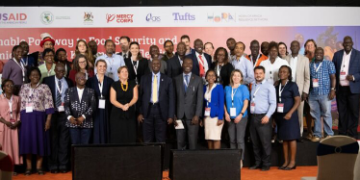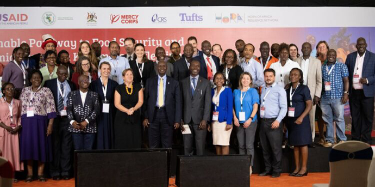Stakeholders have urged the government to address the mismatch between policy and development programs in the Karamoja sub-region.
They believe that if Karamoja’s livestock economy is properly combined with crop production, it can significantly improve the sub-region’s fortunes.
During a dialogue organized by USAID, the Karamoja Resilience Support Unit, the Horn of Africa Resilience Network, Catholic Relief Services (CRS), and the Karamoja Resilience Support Unit (KRSU II) at Speke Resort Munyonyo, USAID-Uganda Mission Director, Richard Nelson, encouraged stakeholders to adopt a multifaceted approach and allocate substantial resources to long-term projects. This approach is necessary to effectively address the challenges faced by the Karamoja sub-region.
Nelson emphasized the need for a shift in mindset and the adoption of climate-smart agricultural practices that align with environmental conservation efforts. These practices aim to mitigate droughts, enhance capacity building, and implement effective response mechanisms. He also stressed the importance of prioritizing high-value agriculture to ensure food security and promote nutritional well-being.
Langole Joseph Lobot, the district chairperson for Amudat, highlighted the exclusion of grassroots communities in the formulation of development programs, which has hindered progress. He emphasized the need to involve these communities in decision-making processes, rather than relying solely on top-down approaches.
Dr. Raphael Arasio, the technical coordinator for the Karamoja Response Support Unit (KRSU), reiterated the importance of affirmative action based on livestock. He emphasized that livestock-centered development is crucial, as animal rearing is the primary source of livelihood in northern Uganda.
Over the past 11 years, the US government, in collaboration with the government of Uganda, has partnered with USAID to undertake various initiatives in the Karamoja sub-region. These efforts aim to enhance food security, economic well-being, and regional peace.
The dialogue aimed to discuss sustainable strategies for achieving food security and economic growth in Karamoja, with a specific focus on three important topics: sustaining food security and nutrition amidst compounding shocks, market-led approaches in humanitarian and dryland contexts, and understanding conflict dynamics and their impact on development











